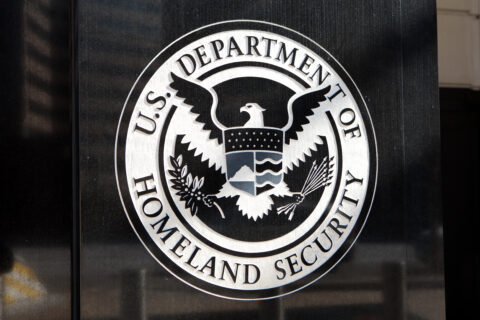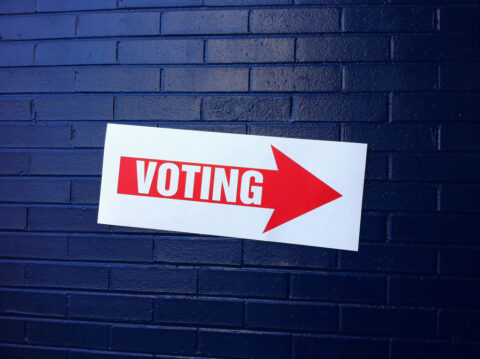Economics

Family Ties: A Closer Look at the Problem with Our Family-Based Immigration System
The U.S. immigration system has always promoted family unity by awarding the majority of visas to the families of current U.S. residents, which ensures that close family members are not kept apart. The principle of family unity has long been a central tenet of our immigration laws and has contributed to the economic and social prosperity of our country and immigrant populations. Read More

What Does a Decline in the Foreign-Born Population Mean to America and Immigration Reform?
For years now, one of the few findings you could count on in the Census Bureau’s annual statistics report was the steady growth in the foreign-born population. Other major indicators of the economy and society—like the poverty rate, or income levels, or even education trends—might go up or down, but it's been reliably true that the U.S. is a magnet for immigrants. Thus it was somewhat of a shock to see the Census Bureau report a decline in the nation's immigrant population between 2007 and 2008. The 2007 national estimate of 38.1 million immigrants fell to 38.0 in 2008. A decline of less than 100,000 people, to be sure, but a bellwether of...what? Read More

An Anti-Immigrant Hate-Fest on Capitol Hill
A motley collection of anti-immigrant zealots and talk-radio shock jocks of the far right descended upon Washington, DC, this week for an annual event dubbed “Hold Their Feet to the Fire.” The two-day marathon of angry rants on the air waves coincided with three days of lobbying visits to congressional offices organized by the nation’s largest anti-immigration group, the Federation for American Immigration Reform (FAIR). Predictably, the assorted speakers and activists in attendance at this year’s hate-fest blame immigrants—particularly unauthorized immigrants—for virtually every economic and social ill to befall the United States, and demand that Congress continue to pursue the “deportation-only” approach to unauthorized immigration that has proven to be an utter failure for more than two decades. Read More

Local Company Gives ‘Sin City’ a Bad Name
Las Vegas prides itself on its strong union-staffed hotels and casinos. However, according to a class-action lawsuit recently filed, Bravo Pro Inc. was allegedly paying workers $3.50 to $4.00 per hour for 13-hour shifts with no overtime pay. Their employees were providing janitorial and maintenance services to Bravo’s clients around the city. According to the Las Vegas Sun: The workers’ attorney, Matthew Callister, says the company held its mostly-Mexican workforce in a form of “indentured servitude,” squeezing more labor out of frustrated workers by promising to make them whole one day. Many tired of waiting and quit. Others, undocumented and desperate for work, remain silent. Read More

New Report from Cato Institute Highlights Economic Benefits of Legalizing Unauthorized Immigrants
Leading economists agree that the cornerstone of any immigration reform bill should be some form of legalization for the roughly 12 million undocumented immigrants currently living in the United States. Critics of legalization, namely enforcement-only cheerleaders, fail to realize that legalization would improve wages and working conditions for all workers—including the native-born—and would yield a net benefit to the recovering U.S. economy. One study estimates that an immigration reform bill which includes legalization would yield a net benefit of $180 billion over a ten-year period, while enforcement efforts alone would actually cost $80 billion over the same period. Read More

States and Localities Critical to Immigration Policies
Governors and mayors, state legislatures and city councils are playing an increasingly critical role in U.S. immigration policy. As a result of Congress’s inaction, states and localities are feeling pressure to take action on immigration, and many of the policies that directly impact immigrants’ lives—law enforcement, public benefits, driver’s licenses—are being driven by new state and local laws. Some state and local immigration policies have been positive and have helped to integrate immigrants into American communities. Others, however, have had a harmful impact on immigrants as well as on public health and safety. The National Conference of State Legislatures (NCSL), a bipartisan organization that serves the legislators and staffs of the nation's 50 states, recently published two documents that highlight the role that states play in immigration policy. One is a report on recent state activity, and the other is NCSL’s official immigration policy statement. Read More

Quadrennial Homeland Security Review: Is DHS Asking the Right Questions?
If you go to the National Dialogue on the Quadrennial Homeland Security Review (QHSR) website and click through to the Smart and Tough Enforcement of Immigration Laws section, you will find a bit of surprise. Despite a title that panders to the enforcement first crowd, implying that immigration policy is all about being “tough,” there is actually a remarkably thoughtful effort to capture a broader set of immigration policy goals. Take a look at the mission statement: A secure, unified, fair, adaptive, and responsive immigration system that protects the public, enriches our society, and improves our economy. Read More

Pollsters Believe a Majority of Voters Support an Immigration Overhaul
Despite anti-immigrant groups repeated attempts to sway public opinion by scapegoating immigrants for the recession, new polling data suggests that the majority of likely voters actually support an overhaul of our broken immigration system—an overhaul that includes a path to citizenship for the roughly 12 million undocumented immigrants living in America. A recent survey by Benson Strategy Group—a group who conducts polling for President Obama and Fortune 100 Companies—found that 71% of likely voters think undocumented immigrants should take steps to become legal taxpayers. Similarly, Celinda Lake of Lake Research Partners said recent polling data suggests that voters want undocumented immigrants out of the shadows and on the books: If anything, the economic climate has actually improved the environment for immigration reform, at least as far as the public is concerned. A salient issue is that reform would make immigrants all taxpayers. [Voters] want a level playing field and they don't have one today. There's a huge pool of workers that are playing by a different set of rules than they are. Read More

The Anti-Immigrant Arithmetic of NumbersUSA Doesn’t Add Up
The anti-immigration group NumbersUSA blames immigrants for just about every environmental and economic ill to befall the United States, from air pollution and urban sprawl to unemployment and high taxes. But, as the Immigration Policy Center (IPC) explains in a new fact sheet entitled Fuzzy Math, NumbersUSA bases its immigrant-bashing on an overly simplistic and fundamentally flawed arithmetic of “over-population” in which “more people” is automatically (and incorrectly) equated with more pollution, more competition for scarce jobs, and higher taxes. In reality, “over-population” is not the main cause of the environmental or economic problems confronting the United States, so trying to impose arbitrary limits on immigration that are divorced from reality will not create a better environment or a stronger economy. Read More

A New Study Reinforces Growing Influence of Second Generation Latinos
A new study by the Pew Hispanic Center estimates that only 7% of all Latino children are undocumented immigrants. Pew also found that a growing share of the children with unauthorized immigrant parents—4 million or 73%—were born in this country and are U.S. Read More
Make a contribution
Make a direct impact on the lives of immigrants.
